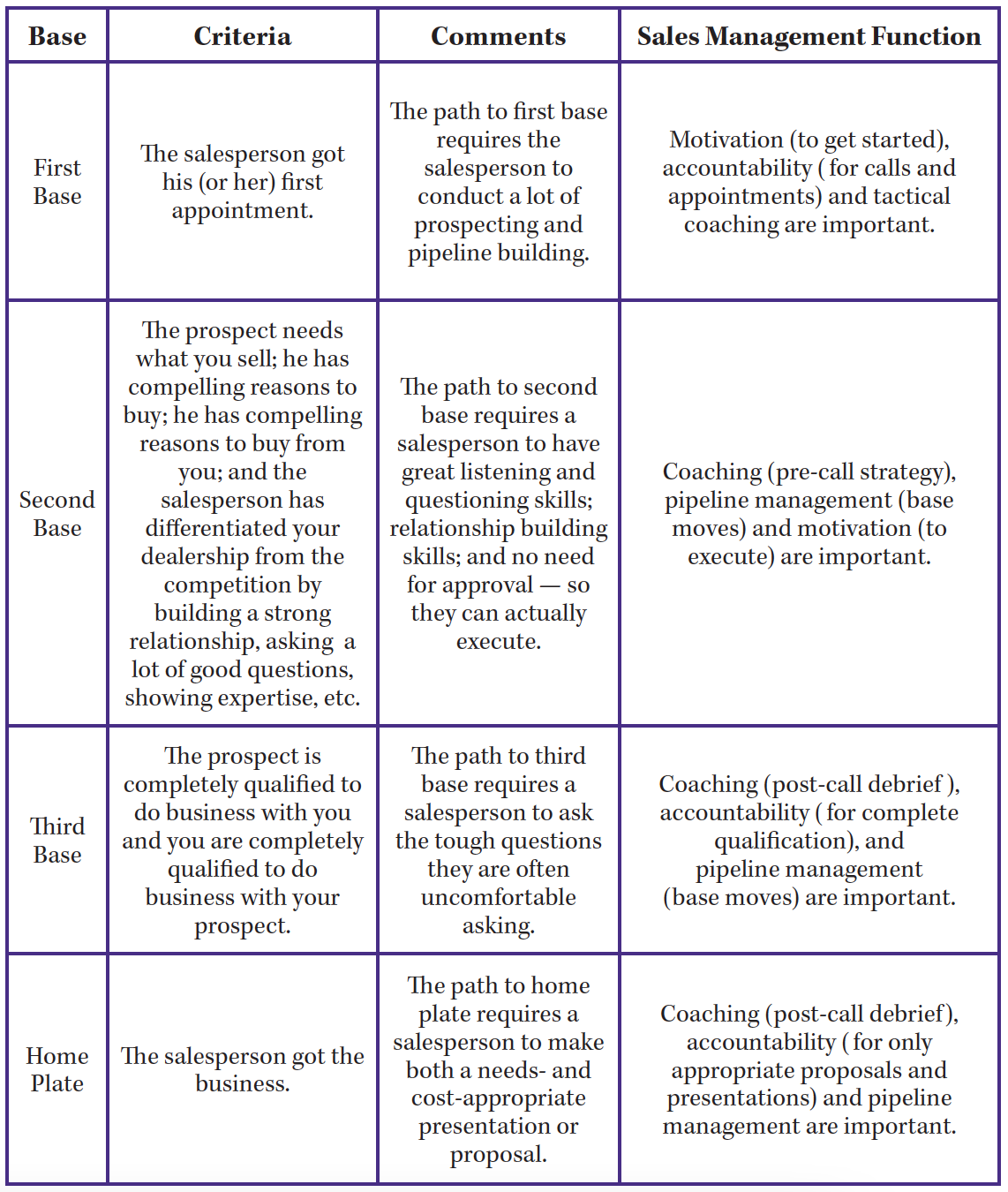How was the sales forecast accuracy in your dealership in 2021? Unfortunately, sales managers at most office technology dealerships either cannot answer that question or, if they can, hate the answer.
When I ask organizations how they are attempting to solve issues with sales forecasting, I hear about an array of solutions they are applying. For example, they might be hiring a sales trainer for a few days or purchasing new software. However, only 18% of companies surveyed list customer relationship management (CRM) software as a strength.
Overall, the typical approach to solving a sales-related problem is to address the symptoms. This creates a culture of chasing after solutions — in search of the perfect process — and a hope that it will magically solve underlying problems.
What if you could stop chasing symptoms and solve the root of your problem? The real issue is that most salespeople do not adhere to structured sales processes and sales managers do not have road maps to assist in managing the opportunities. In reality, only 33% of salespeople possess sales process competency as a strength. On the surface, the solution sounds like a risky change, but it turns out that, in most cases, solving the root of sales-related issues, instead of symptoms, is straightforward.
The solution is implementing a staged, milestone-centric sales process and managing it. The sales process is the framework for everything in sales. It is the language we use to speak to our sales managers and salespeople. It allows us to ask questions around opportunities such as: “Where are we at in the sales process?,” “What is the next step?” and “What resources do I need?”
Once a sales process is in place, it provides the insights and data to track what is working and what is not so adjustments can be made. Those process changes can be rolled out across your sales team instantly. You can include training videos and other content to help your team members understand and correctly apply the changes, and coach effectively.
Coaching the sales process is the foundation of sales management. Even skills coaching and development is tied to the sales process. The sales process is the DNA that runs through everything in sales.
Take a moment and do a Google search for “sales funnel.” Look at the image search. You will find more than 40. But none determine where a prospect is in the sales process or, if forecasting, determine if and when the opportunity will close. So, we cannot just assume we have a sales process and it should work.
Many of the problems in sales organizations stem from the assumption that salespeople ought to know what to do and if they do those things, they are doing well. Human nature tells us otherwise, and even the best salespeople do not always know the next best step; middle performers certainly do not. Even when they know, it is human nature to take shortcuts.
A well-planned and executed sales process addresses this underlying issue. It captures the best practices of your top performers and lays out a framework for all salespeople to follow. With a simple enablement platform/CRM, the process becomes part of every salesperson’s daily workflow, guiding them step by step through each opportunity. The mantra of great sales teams is: “Do not skip steps.”
I am a huge baseball fan and have coached college and high school baseball teams. The following chart is an excellent milestone-centric sales process that references the game of baseball, which we can all relate to. It can be found in Dave Kurlan‘s book, “Baseline Selling.”

Most salespeople love to go from first to third base and skip second base. Why? Usually, it is because they do not have other prospects in the funnel and want to rush the prospects they do have to a forecast stage to meet their managers’ requirements. This type of behavior must be changed. It will be painful and might take a few months to straighten out, but it will get them on track. Your reps and teams will realize they cannot skip steps to be successful.
Coaching is required for each base. Motivation is most important for getting your salespeople to first base, while pipeline management and accountability are crucial along the way. Incorporate this process into everything you do and provide a lot of support. This is a predictive process that can be understood and managed. If your sales reps understand this and your sales managers manage to it, your sales results and forecast accuracy will improve dramatically.
—
Mark Perlo is President of Sales Growth Partners. He offers a track record of achievement in creating a strategic vision, driving change and developing/motivating high performance teams that deliver multiyear, multimillion-dollar results. Perlo is a business analyst and customer-focused executive with a proven ability to start new enterprises and turn around underperforming operations. A subject-matter expert in building and managing teams, sales management and sales process, he has vast executive experience with a Fortune 500 company and an extremely successful entrepreneurial startup. He has built and sold office technology businesses, including Xerographic Solutions Inc. (XSI) in Fairport, New York.
He can be reached at (585) 370-1300 or markperlo5@gmail.com.

